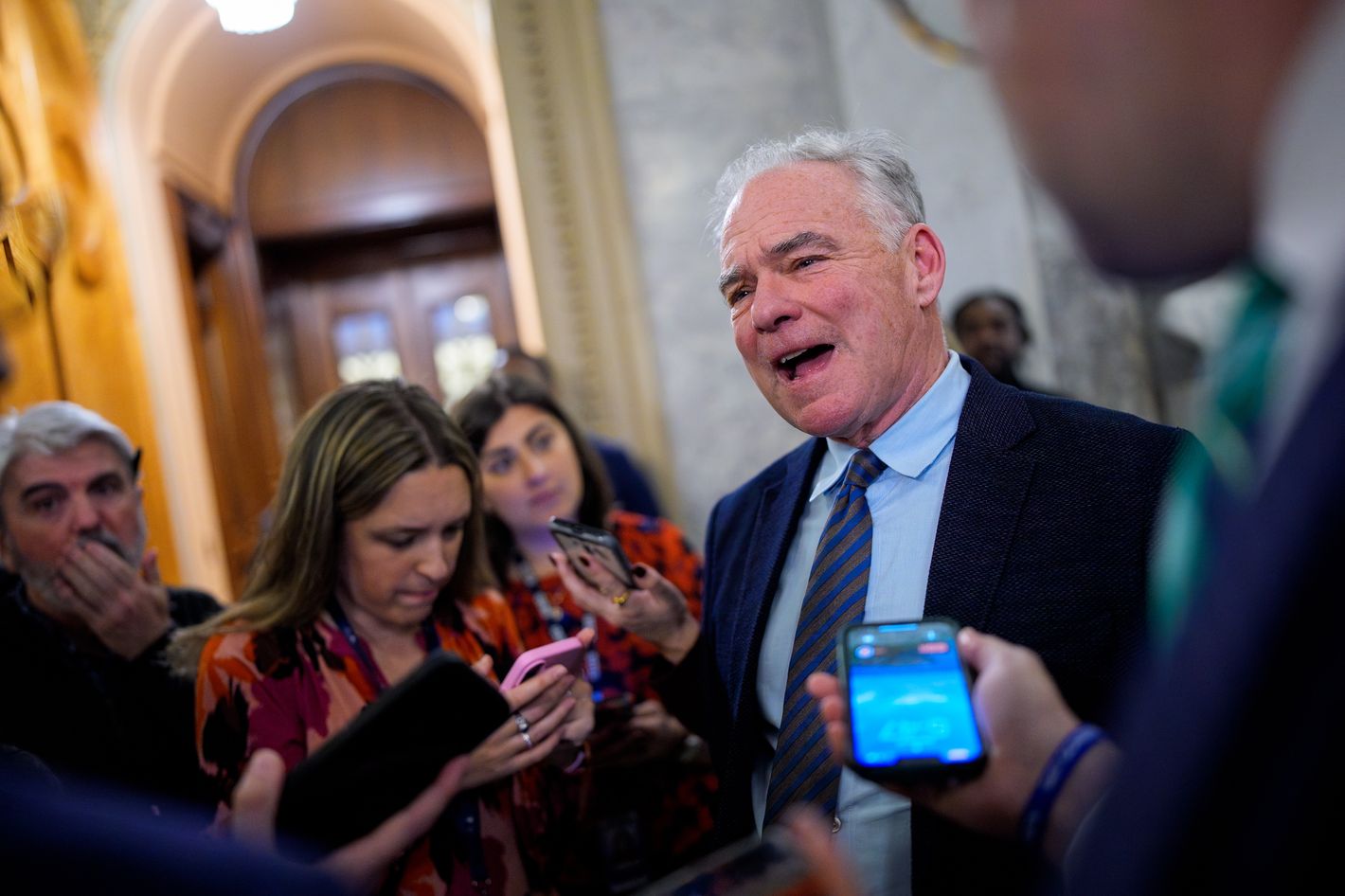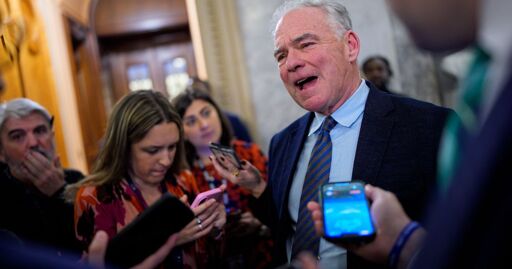
Photo: Andrew Harnik/Getty Images
In all the assessments of how little congressional Democrats got from the longest government shutdown in history, there’s one detail that probably deserves more scrutiny than it’s receiving so far. Part of the deal that secured eight Senate Democratic votes for reopening the government provided back pay for workers furloughed during the shutdown, which was predictable since it’s happened after every other government closure. What was new was a provision canceling the layoffs (reductions in force, or RIFs) that Office of Management and Budget director Russell Vought ordered at the beginning of the shutdown and a ban on future layoffs during the length of the agreement. This was the handiwork of Tim Kaine, who represented the final vote needed to enact the reopening legislation, as Politico explains:
Tim Kaine privately laid out weeks ago what he needed in return for his vote to end the government shutdown: a “moratorium on mischief.”
That’s what the Virginia Democrat told Senate Majority Leader John Thune that any deal had to include — undoing the firings President Donald Trump and budget director Russ Vought had carried out since the start of the shutdown, as well as protections against future firings of federal workers, who make up a significant portion of Kaine’s constituency.
The White House agreed to the provision through its Senate GOP intermediaries and, though it’s never safe to assume this administration will obey the law or keep its promises, Kaine did manage to secure something of an intangible benefit beyond restored jobs for thousands of laid-off federal employees. The “moratorium on mischief” represents the very first relinquishment of captured congressional turf by the administration in 2025 and the first time Donald Trump has agreed to put a leash on Vought.
Yes, the ban on RIFs will be in place only until January 30 when the latest stopgap spending patch expires. But you can be sure that Democrats and, more quietly, some Republicans in Congress will now want it to be a regular feature in all future spending measures until Trump and Vought have packed their bags and left Washington to go home to their fever swamps.
You could also argue the reopening legislation contained another small victory for Congress over Trump. It included three regular appropriations bills, which cover the USDA and FDA, military construction and the VA, and spending in the legislative branch. These are bipartisan bills covering expenditures until the end of the fiscal year, not the sort of stopgap measures covering the entire government we’ve gotten used to during an era of party-line legislation demanded by domineering presidents.
These bills matters because every step back toward normal operations in how Congress does its business is a step away from every decision being made in the executive branch by Trump and his henchmen, whether it’s Vought, Elon Musk, or an agency head. It’s unsurprising that Republican Appropriations Committee members such as Susan Collins and Katie Britt were instrumental in crafting the government reopening bill. Their relevance in Washington was just as much on the line as Kaine’s.
We are, God help us, a very long way from the end of the Trump administration. But we’re not that far away from midterm elections that could flip control of one if not both congressional chambers, ending the Trump reign of terror over the legislative branch. It’s encouraging to see that the endless expansion of presidential power during 2025 has its limits even in this Republican-controlled Congress. The “moratorium on mischief” and a partial return to regular order represent small holiday gifts for defenders of the Constitution.
From Intelligencer - Daily News, Politics, Business, and Tech via this RSS feed

